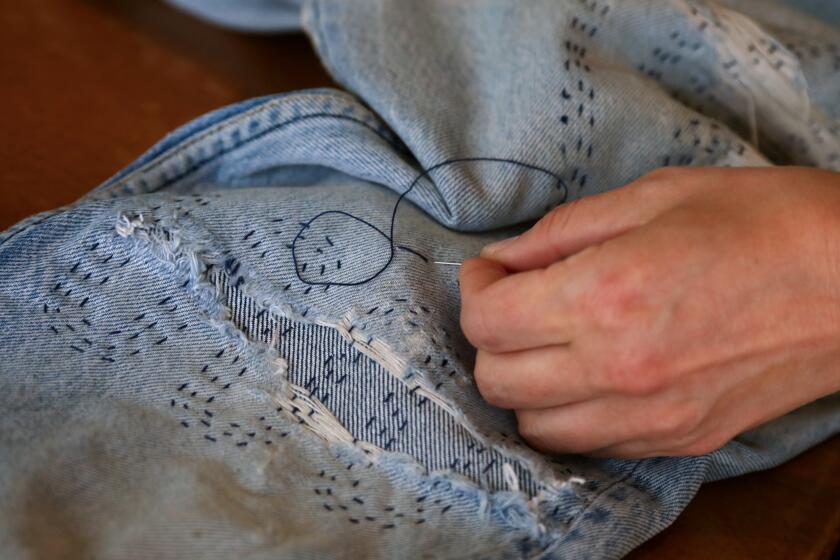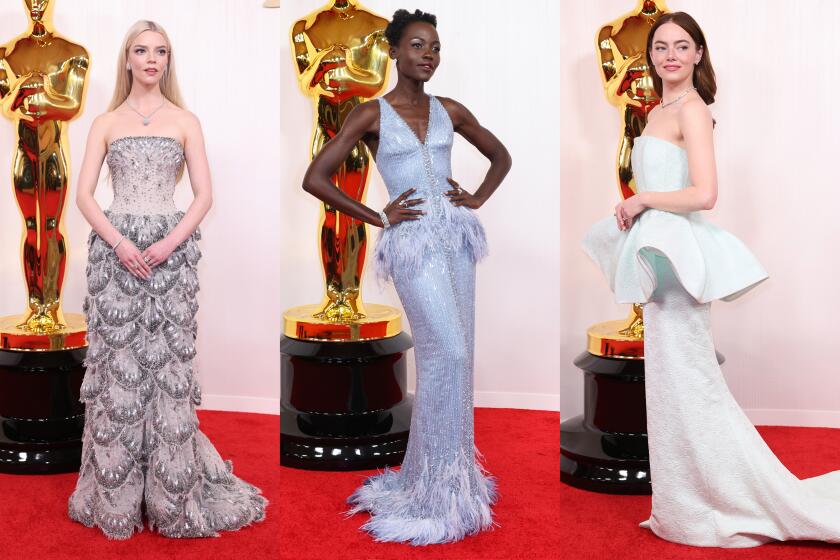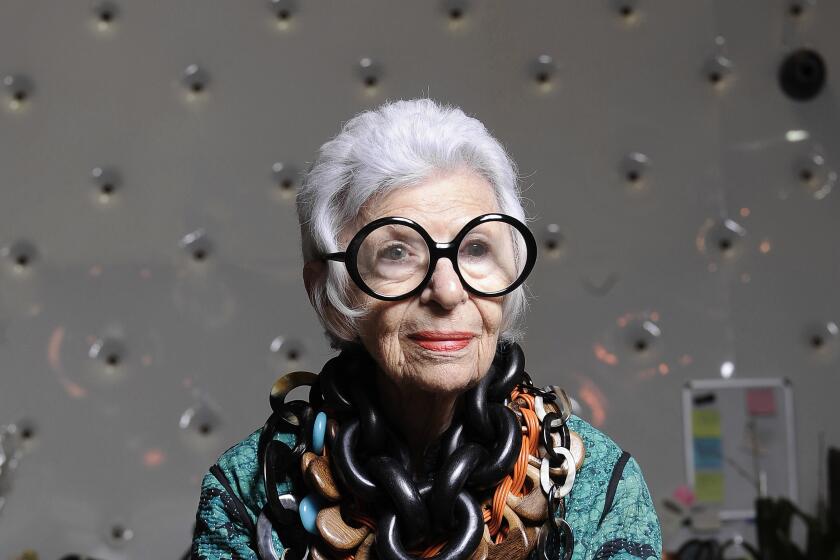The roots of racial pride
WHEN I WAS young, one of the first things I learned about myself was that I had “good” hair. It was curly and close enough to the texture of a white person’s hair to not need pressing, hot-combing, greasing or some other method of straightening that extremely curly black hair -- also known as kinky or “bad” hair -- needed before it could venture out in public. Yet even my hair was not quite good enough.
Every Sunday my mother washed it, set it on rollers the size of frozen orange-juice cans and put me under a hairdryer for a couple of hours. When it was over, I had the ultimate “do” -- smooth and swingy, with none of the wayward curl or frizz that would have confirmed my blackness as much as the Marlo Thomas look cleverly denied it.
I eventually learned early that this “denial” look was the ideal for black girls and women, and though I had to do less denying than most, I was not exempt. I also learned that good hair on black people was considered good for reasons much deeper than convenience -- it connoted assimilation, sophistication, intelligence, refinement, success. Even when I jettisoned the whole hair ritual and got a short, punky cut, I did it more to reject the limitations of an old paradigm than to celebrate a new one.
I might have saved my protest. Denial is still at the core of black hair fashion, which in turn is at the still-unstable core of black identity and acceptability in the United States in 2006. Although braids, dreadlocks and other natural black hairstyles have become more visible, perms, weaves and extensions for black women have become ubiquitous.
In short, the debate about the best choices for “black hair,” always charged, is flaring up again. A Louisiana sheriff said last week that anyone on the streets in dreadlocks “can expect to be getting a visit from a sheriff’s deputy” because a murder suspect answering that description remained at large. In April, Susan L. Taylor, the iconic editorial director of Essence magazine, canceled a campus speech when she discovered the college forbids its students to wear “unusual” hairstyles -- including braids, which are Taylor’s signature look. This was noteworthy because the college was Hampton University, one of the nation’s oldest historically black campuses. Then it was discovered that Black Enterprise magazine had a similar ban for student interns.
The message is clear. If blacks want to have a chance in the increasingly unforgiving corporate world, they will have to shave off their edges -- starting with their hair. To Taylor and to many others, including me, such a message implies a false choice between assimilation and self-affirmation. What looks like practicality is, in fact, more denial.
What’s troubling is that, by being forced to change their hair, black people once again are being forced to shoulder the burden of proof: We’re not as fearsome as we look. It’s up to us to mitigate our dark skin and ethnic features by framing them with hair that’s as neat and unethnic as possible.
That the requirement comes from black institutions only makes it more disturbing. Yes, they are inherently conservative institutions, but they understand the political significance of hair. They should know that this is not the same as a dress code that calls for a suit and tie (understandable), or a Cosby-like antipathy toward trendy, sloppy, vaguely criminal black fashion such as baggy pants or expensive sneakers (understandable, but misplaced).
Unlike any of those looks, braids and other natural styles have long been associated with socially conscious and self-confident black people, the kind who would fit nicely in corporate settings that like to say diversity is a priority. But companies tend not to hire them, and black people with those hairstyles tend to gravitate toward work that’s necessarily non-corporate. Yet surely we have all earned the right to wear our hair as we please. The freedom we’re still working toward is supposed to be aesthetic as well as economic.
Mablean Ephriam, the black TV judge from Fox’s popular “Divorce Court” -- who says she lost her contract this year partly because of irreconcilable hair differences with the company -- perhaps said it best in a contentious parting statement that concluded with a quote from Maya Angelou: “And still I rise.” I trust she meant her hair.
More to Read
Start your day right
Sign up for Essential California for news, features and recommendations from the L.A. Times and beyond in your inbox six days a week.
You may occasionally receive promotional content from the Los Angeles Times.






